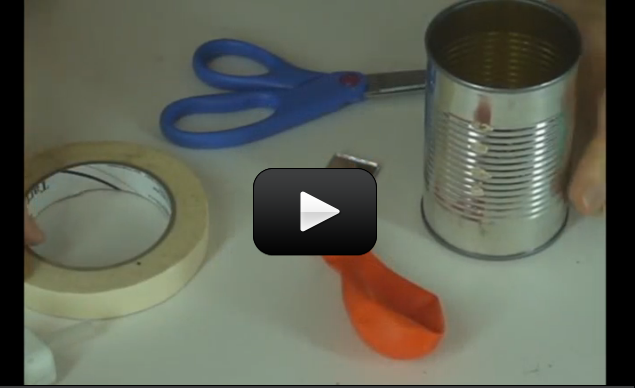After you’ve completed this experiment, you can try making your own sound-to-light transformer as shown below. Using the properties of sound waves, we’ll be able to actually see sound waves when we aim a flashlight at a drum head and pick up the waves on a nearby wall.
Here’s what you need:
[am4show have=’p8;p9;p11;p38;p92;p16;p43;p64;p75;’ guest_error=’Guest error message’ user_error=’User error message’ ]
- empty soup can
- balloon
- small mirror
- tape
- scissors
- hot glue gun
- laser or flashlight
You will be adjusting the length of string of a pendulum until you get a pendulum that has a frequency of .5 Hz, 1 Hz and 2 Hz. Remember, a Hz is one vibration (or in this case swing) per second. So .5 Hz would be half a swing per second (swing one way but not back to the start). 1 Hz would be one full swing per second. Lastly, 2 Hz would be two swings per second. A swing is the same as a vibration so the pendulum must move away from where you dropped it and then swing back to where it began for it to be one full swing/vibration.
[/am4show]
“Advanced students: Download your Seeing Sound Waves using Light


Oh no! I just fixed this last week and it came back again. Sorry – let me update it again.
Hi. the video here doesn’t seem for the same project ?